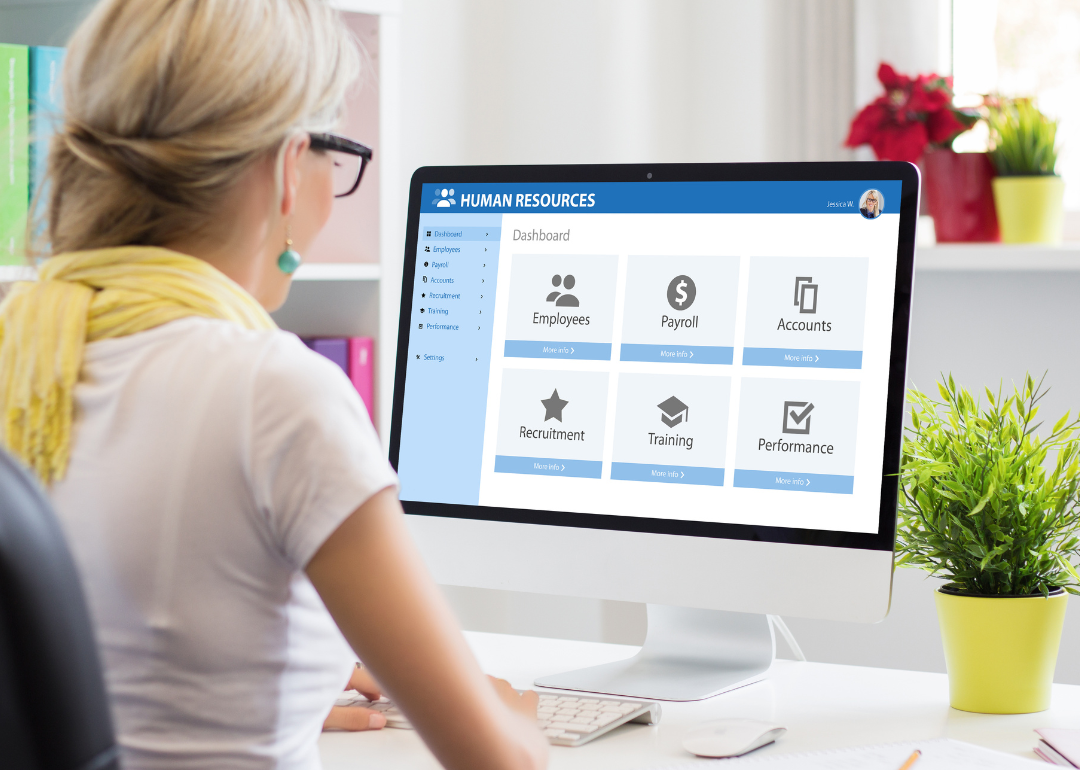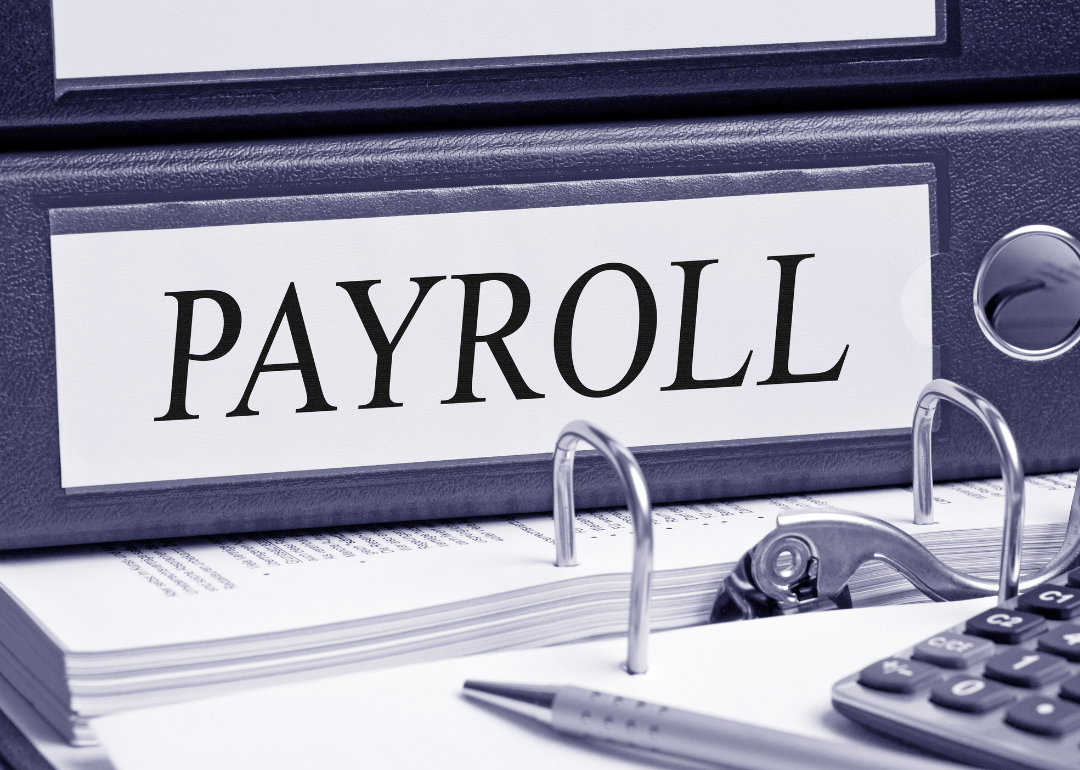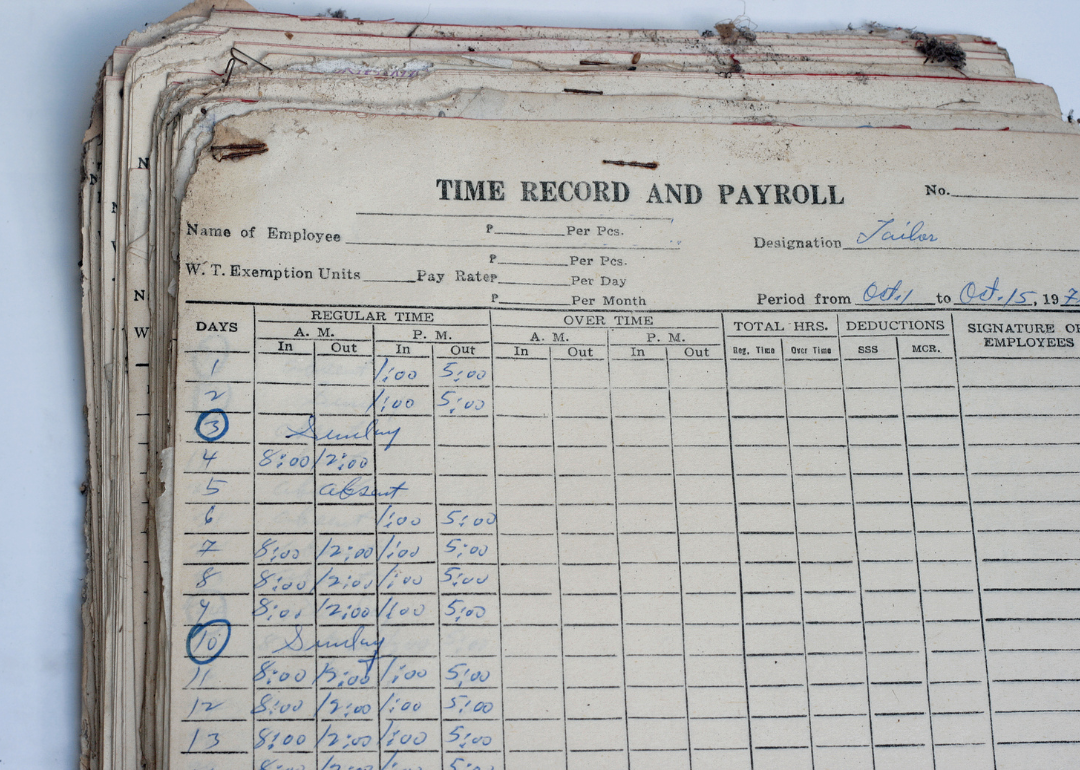10 tips for managing payroll for small business owners

Andrey_Popov // Shutterstock
10 tips for managing payroll for small business owners
A business person handing a check to an employee.
It’s essential to closely manage company payroll in a way that best suits your specific business needs and supports your employees. Given the complexities of state and federal taxes and the importance of paying your staff on time, keeping good records sets you up for success as your business grows—whether you’re bootstrapping a startup or managing a team.
Buddy Punch leveraged a collection of expert sources to compile a list of ways small business owners can create and maintain a bulletproof payroll system. Central to these insights is the goal of building a secure and accessible payroll system that protects data and allows employees to access their personal information.
Small businesses may have to outsource specific parts of their payroll systems to experienced professionals to ensure compliance, while smaller companies can delegate these tasks to an individual. Keep reading to learn more about wise management of payroll systems, from picking the right software to staying in compliance.
![]()

Kaspars Grinvalds // Shutterstock
Select appropriate payroll software
A human resources worker using a payroll software.
Payroll software is far from one-size-fits-all, and there are several factors at play to keep in mind while shopping around.
From the ease of use and features to integrations and support, there are plenty of options to choose from. It’s wise to start by considering the number of employees at play before making a decision. Will you or your team be able to keep up with the demand for updating employee records? Remember that if you have remote employees, you’ll be responsible for their state and local taxes.
In addition to the number of employees, small business owners should consider what benefits are offered, when payroll will be executed, and who will administer it. Other factors—including the payroll budget itself—are worth keeping in mind to ensure the system you select will be right for your company.

Rawpixel.com // Shutterstock
Create a payroll calendar
A human resources employee looking at their calendar.
No matter which kind you use, calendars are part of our daily lives—and there’s no exception for a small business. A payroll calendar considers the pay periods and can track important IRS tax filings. Knowing what is due at a particular time allows payroll managers to plan and schedule payments to the government promptly and effectively.
Using a payroll calendar also helps a business manage available funds for payroll each pay period. If you decide to DIY your payroll calendar, consider using a template to organize employee pay and tax filings.

Rostislav_Sedlacek // Shutterstock
Hire a payroll administrator
A payroll administrator making calculations.
While some small businesses can get by managing their own payroll, there are times when outsourcing or hiring a payroll specialist or administrator may be necessary. A payroll administrator will keep the business up to date on tax regulations and employee changes and updates.
When hiring for this role, look for people knowledgeable about payroll laws, regulations, and taxes. Knowing when to hire a payroll administrator will depend on how many employees you have and if you support remote workers. Whether you decide to outsource or do it yourself, you’ll need someone to provide quality checks on your processes.

Natee Meepian // Shutterstock
Keep payroll and operating expenses in separate accounts
An office employee working on payroll.
The adage “Don’t put all your eggs in one basket” applies to managing payroll for your small business. Keep your bank account for payroll separate from your general operating expenses. Doing so will help your accountant track transactions and keep records updated.
See if your current bank can add another account for payroll with no added costs. While it may appear easier to keep all of the accounts connected, you’ll have more to manage as your business grows. Start out with a payroll clearing account to maintain financial security and allocation.

mavo // Shutterstock
Never dip into payroll tax funds
A deli worker calculating their taxes.
There are huge implications with the IRS for not paying payroll taxes. Although some businesses may need the money to take care of other business expenses, it’s never a good idea to borrow from your business’s tax funds. One option that small business owners may consider is taking out a loan to cover miscellaneous expenses rather than using payroll funds and risk missing important tax payments.
If your company uses payroll tax funds to pay for other operations, it may be time for a business audit. Consider creating a rainy day fund for your business to discourage any payroll account dipping.

docstockmedia // Shutterstock
Document your payroll process
A binder of payroll records.
Sweat the small stuff. No matter the size of your small business, keeping good records will serve your business well in the long run.
From one employee to multiple, it’s critical to keep meticulous records. The IRS expects you to maintain payroll records for at least three years. A well-documented process will help your business comply with tax laws and keep track of your employees’ pay and updates.
If you are the sole employee of your business, make it a habit to record everything: This process will allow you to see the overall health of your business and allow for future planning.

RAGMA IMAGES // Shutterstock
Develop a thorough timekeeping system
An old stack of payroll records.
Setting up a good digital system to track your employees’ time is crucial in making your business more efficient. Accurate timekeeping will help with accounting and payroll records—and there are plenty of resources that make the process easier.
Some low-cost options work with other business tools to streamline the process of payroll compliance. Consider outsourcing payroll timekeeping to meet the demands of your growing workforce.

Andrey_Popov // Shutterstock
Talk to employees about what works and what doesn’t
An employee taking a survey about payroll.
For young businesses, polling employee preferences can help settle certain payroll options. Some workers prefer biweekly pay periods, but others—often hourly employees—may prefer to be paid weekly. Take the opportunity to ask your employees what works for them and structure your system accordingly.

NIKCOA // Shutterstock
Keep employee info well-organized and secure
A business owner writing a check based on payroll data stored in their computer.
Protecting small-business payroll data is just as important as protecting data files, and secure systems will do both. Employees can access their payroll system to update records and view pay stubs, which should be made available through payroll system training. Ensure the integrity of your business by protecting your employees’ data. Implementing a strong payroll system includes limiting who has access to sensitive employee data.

JIM WATSON // Getty Images
Keep up with state, local, and federal payroll rules
President Joe Biden signing the Paycheck Protection Program Extension Act of 2021 into law.
Staying updated on payroll rules can keep your business running smoothly without the stress of audits or fines. Payroll systems will manage this for you.
For a business without the capacity or expertise to track local and federal changes, business owners should consider outsourcing this work to a contractor who can. Subscribing to local and federal mailing lists may be useful to stay abreast of new updates.
This story originally appeared on Buddy Punch and was produced and
distributed in partnership with Stacker Studio.